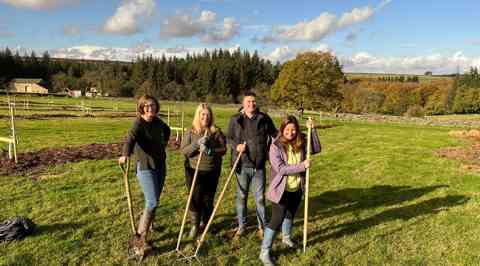At Lime Venue Portfolio, we have the great honour of working within some of the most iconic sporting stadiums in the country, representing the best of British Rugby, Cricket, and the internationally renowned Premier League.
“Taking the positives” therefore is a phrase that we often see after our favourite sides have either handed out, or been given, a mauling from the opposition. It’s a way of saying that even in the most difficult of circumstances, we can still learn.
However, when it comes to something as horrific as a global pandemic, its effects on society both personally and professionally, it’s very difficult to find any kind of positive. But, away from the personal, the professional we may be able to. In fact, if we are to progress as an industry and protect the jobs and livelihoods of those (over ¼ of a million) people still in it, we really must do. The reality is, ours is a vulnerable industry, and we all need to contribute to making what we do more robust.
Take the cost of living crises. The reality is that this is yet another issue that will have an effect on what we do. The high inflation, the cost of energy, the decreasing amount of money families now have to spend, will all have detrimental effects on us as businesses, but also us as creators of experiences.
The questions are many; will delegates be able to afford to travel? Will this cut down the amount of face-to-face interactions businesses can afford? Can the industry eat up the attack on margins that will affect hospitality, from food to people transportation, from turning the lights on to keeping everyone warm?
However, we do have the answers now; and this is in no small way due to the pandemic and how it has adjusted our thinking.
First of all, let’s take the massive leaps and bounds we have made in our development of hybrid technology. Not just the quality of the experience itself, but our collective agility in switching between live and digital formats, depending on the needs of the audience. It is no longer a difficult switch for a delegate to go digital if the cost of living continues to attack their wallets. Not only that, but we also now have the right expertise, experience and technology for this to not damage the experience as much as it perhaps used to.
Equally, businesses can continue to receive the same value from their event as before, regardless of a continuing shift of delegates between live and digital. They can communicate their messages, talk to their staff, customers, stakeholders, and they can get the returns on their investments. The best things about the hybrid revolution are the ability of the business to go directly to the delegate that cannot come directly to them.
Secondly, let’s look at sustainability. Whereas sustainability before the pandemic was important, in 2022 its critical. The emphasis on sustainable actions has never been more focused and already the event industry is taking on this responsibility on behalf of its customers.
The simple strategies of reduce, reuse, recycle applies across everything from energy to travel and the specific actions around ‘reduce’ has been the obvious starting point. Now, more than ever businesses are looking to be smarter with how they source and use their energy, where it comes from, and what it costs. Equally, delegates are more aware of waste and more willing to work with business to do their part. We’re about to be welcoming a lot of delegates who would rather throw a window open than see the venue spend money on air conditioning … and they’ll let us know.
These are scant ‘positives’ from a global pandemic, but they are behaviour changes that have left a legacy for business and that can be embraced to support positive outcomes, environmental action and, at the same time, support the increased pressures on peoples personal and professional budgets.
There is so much more to come from the events industry in its battle to become a carbon neutral sector. But the cost of living crisis could be just one more reason for us to continue to do the right thing for the people we do business with… and their delegates.




